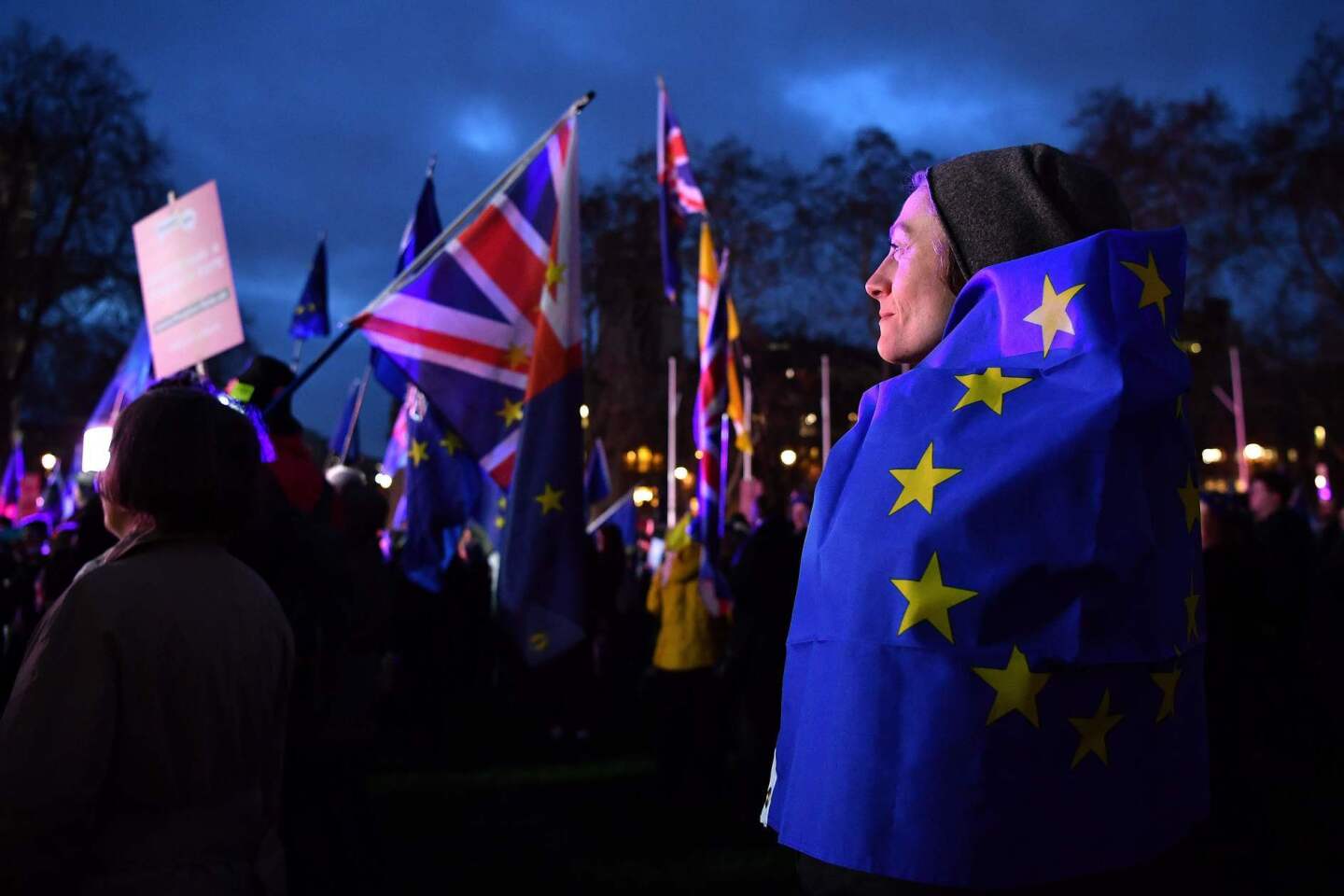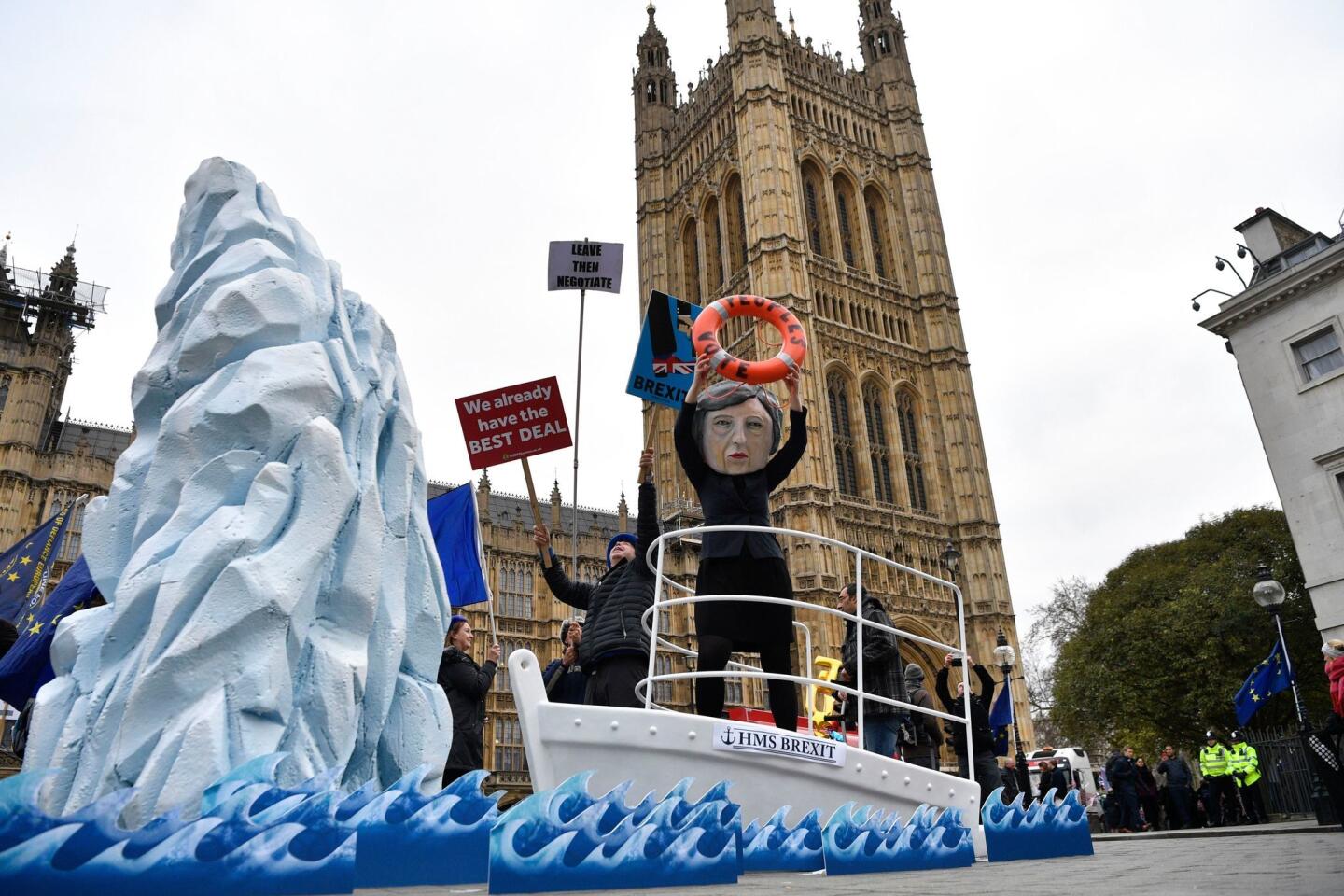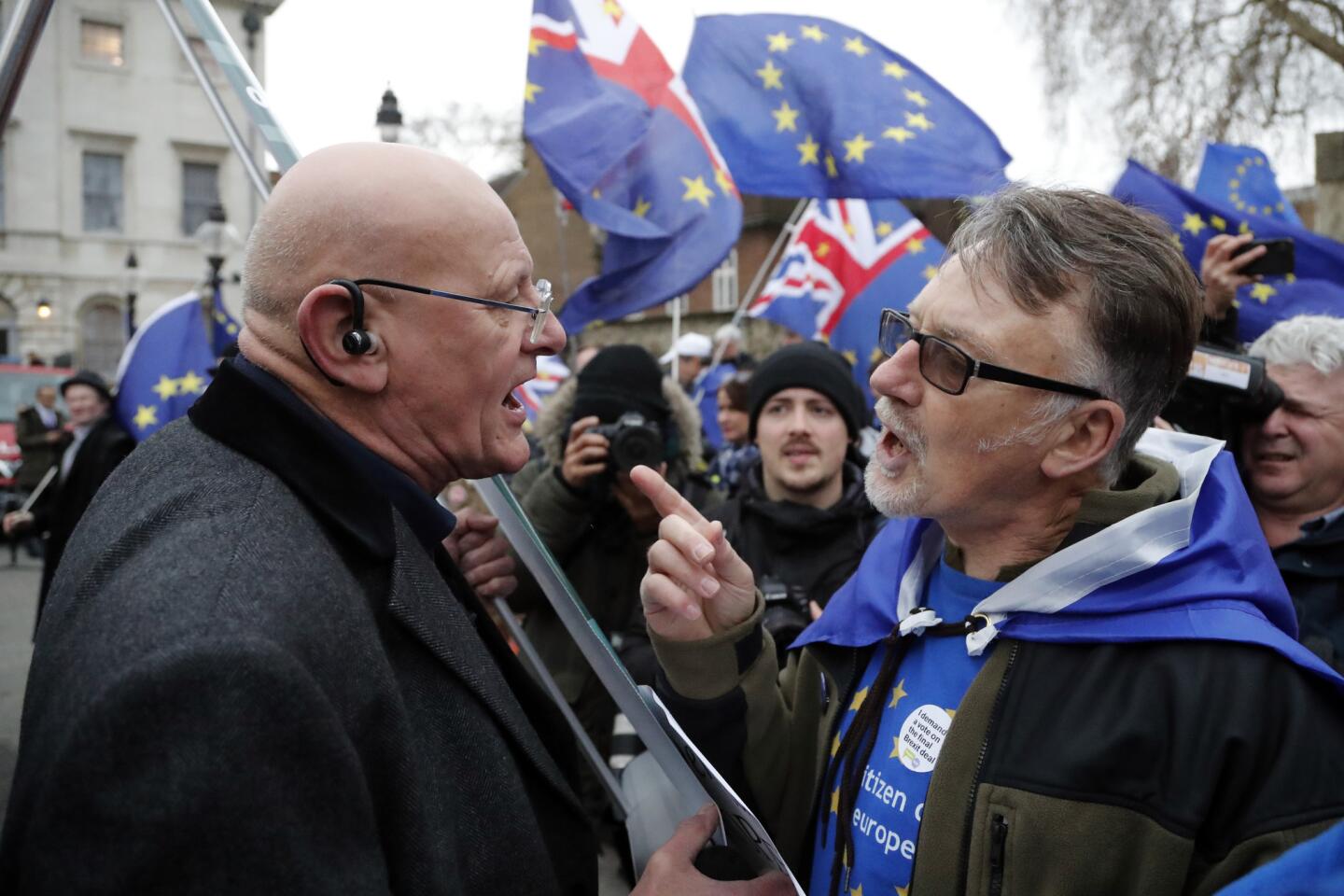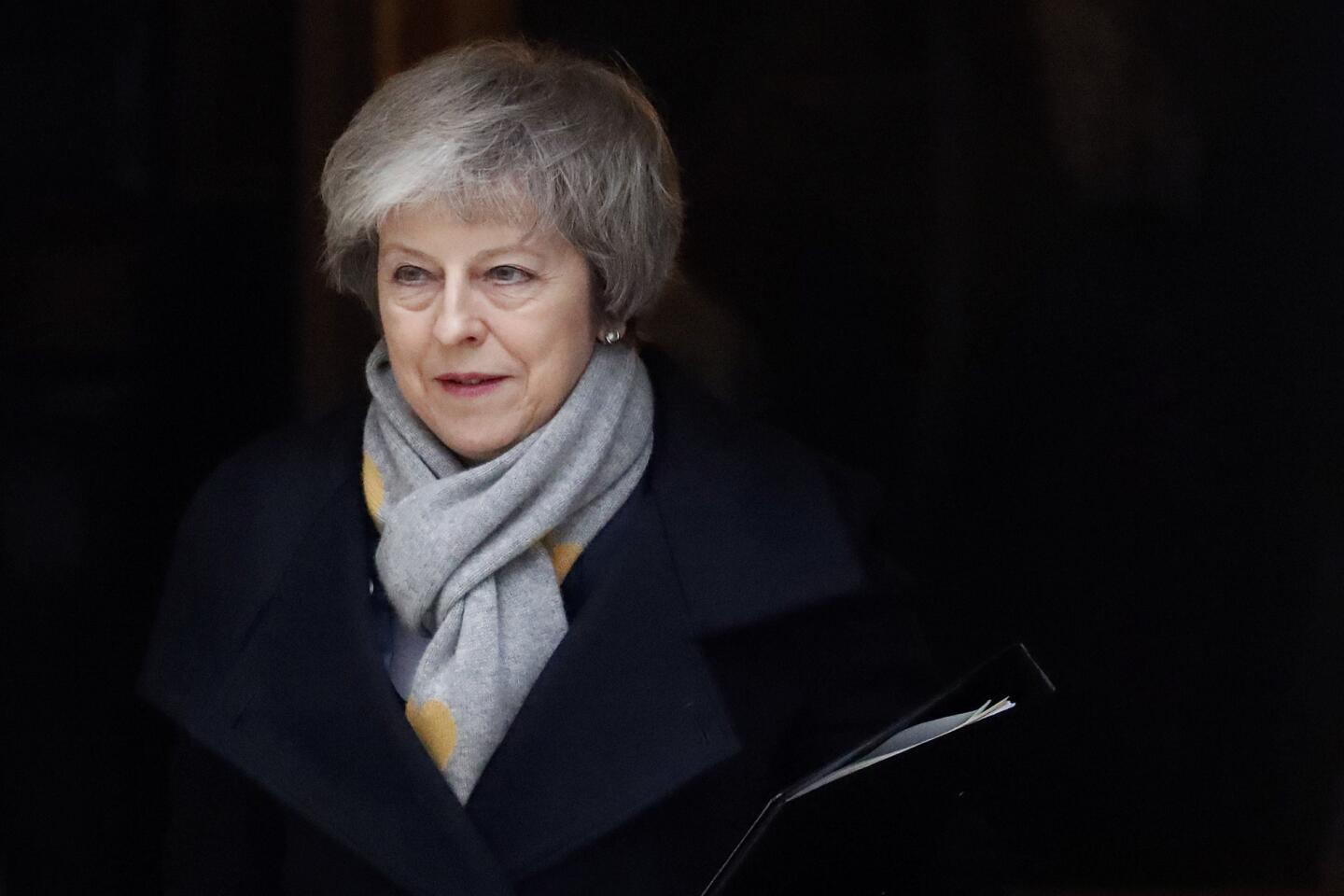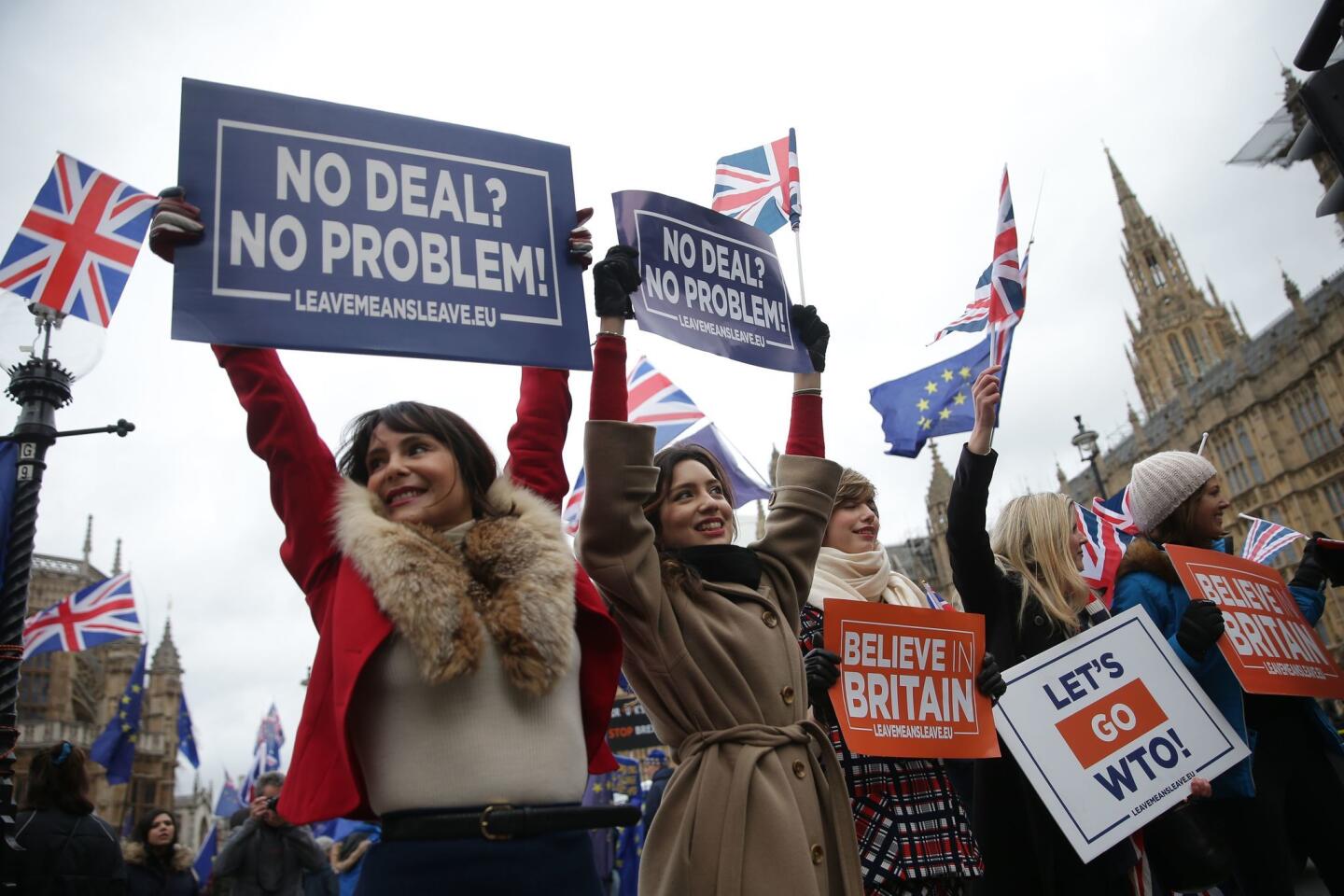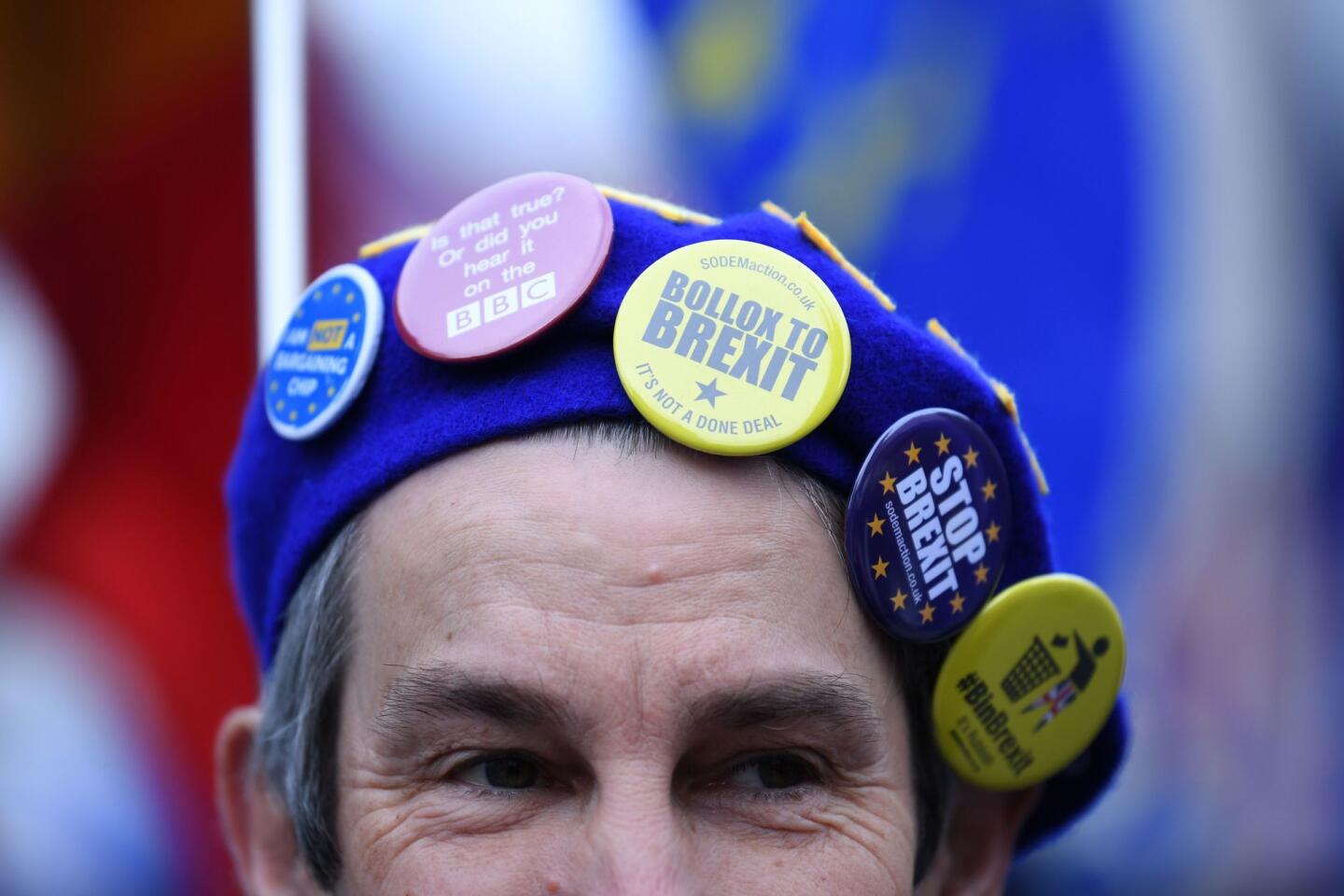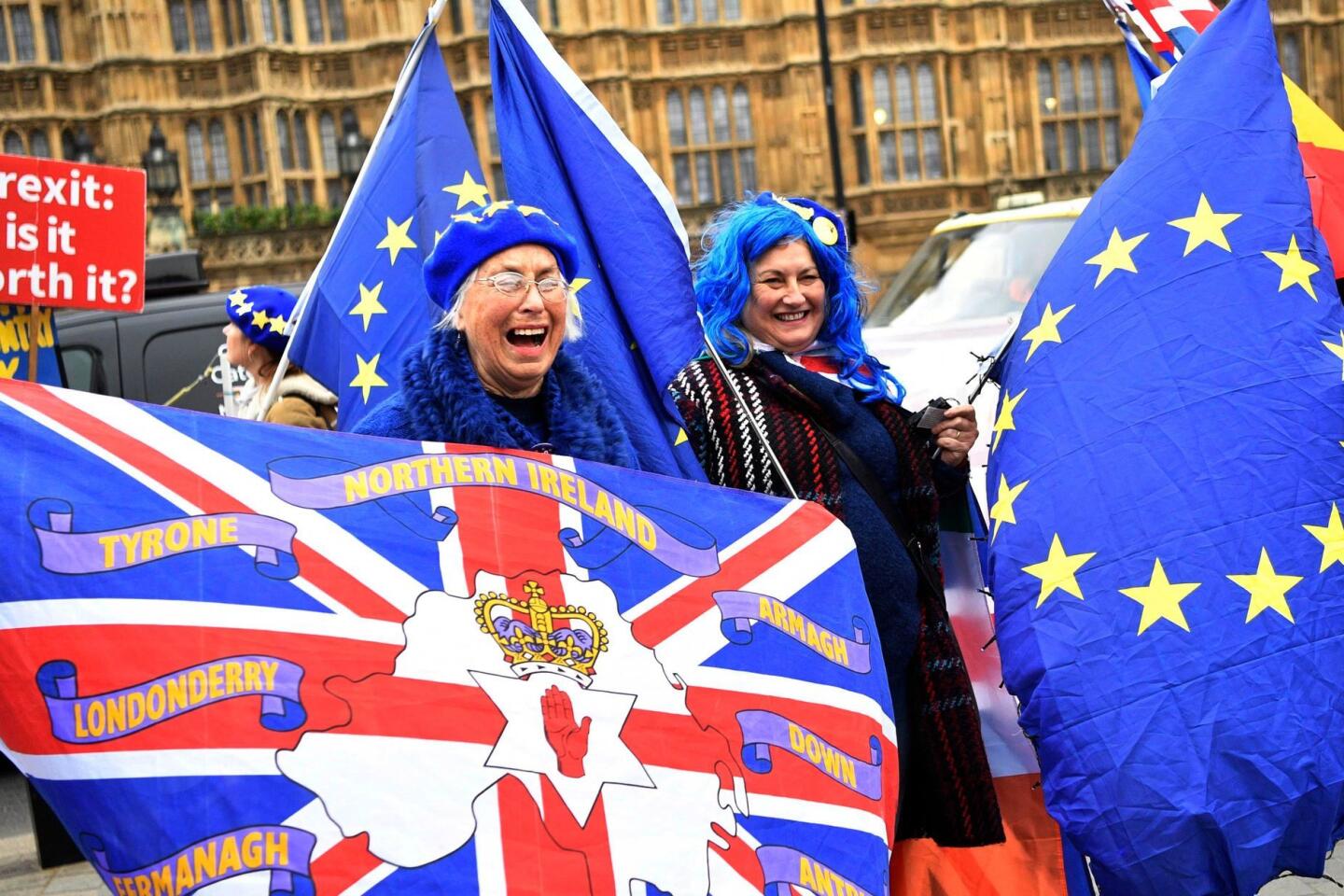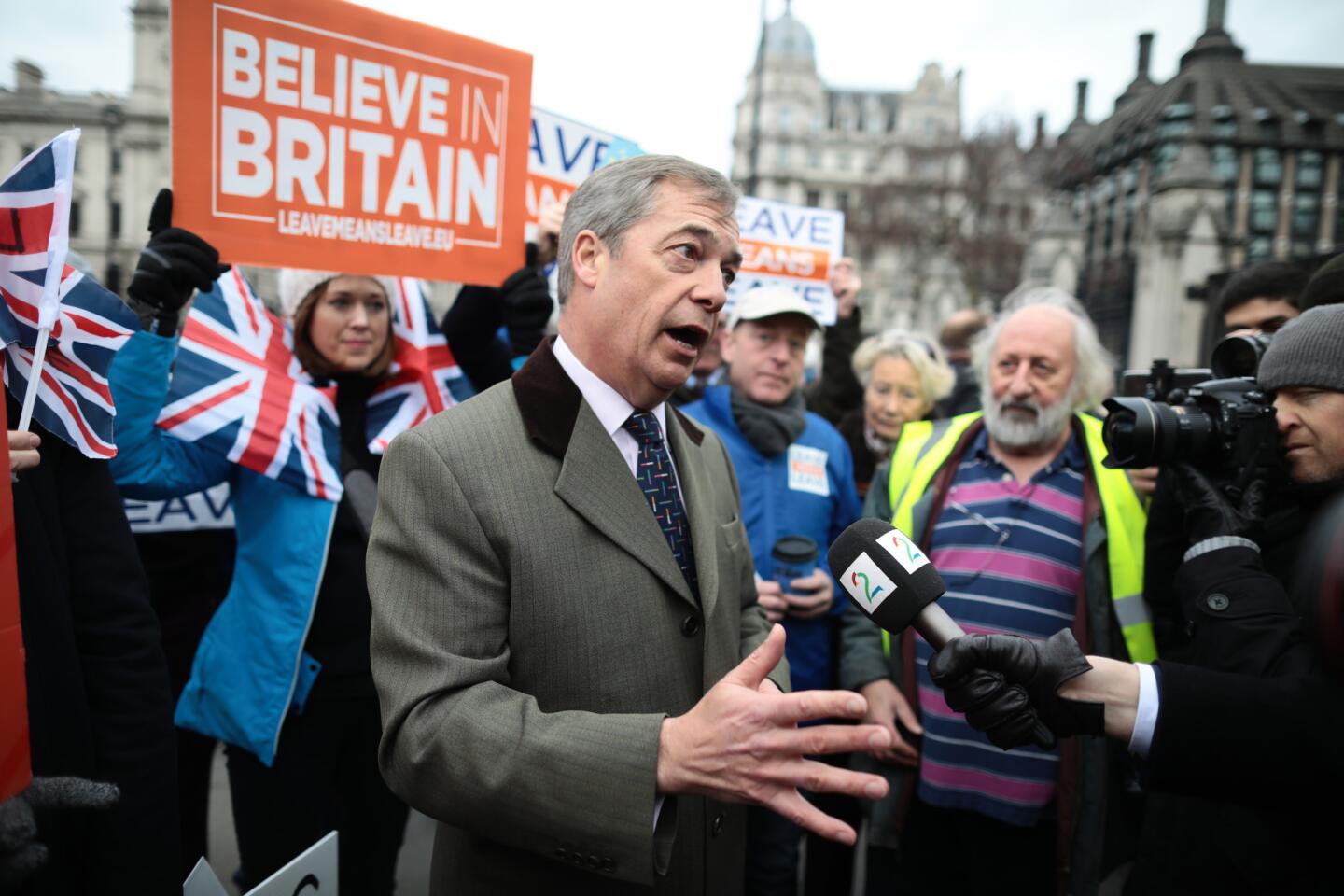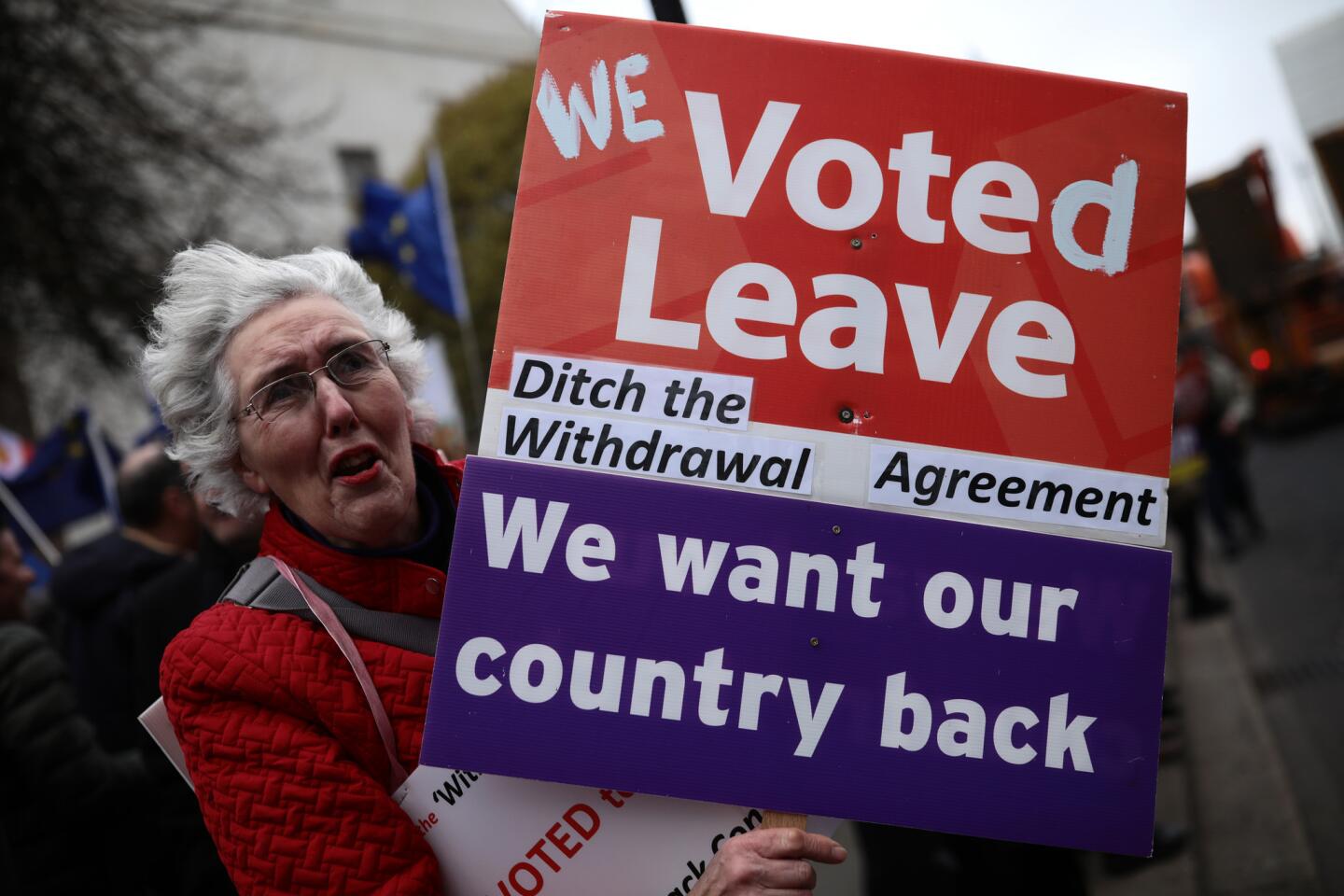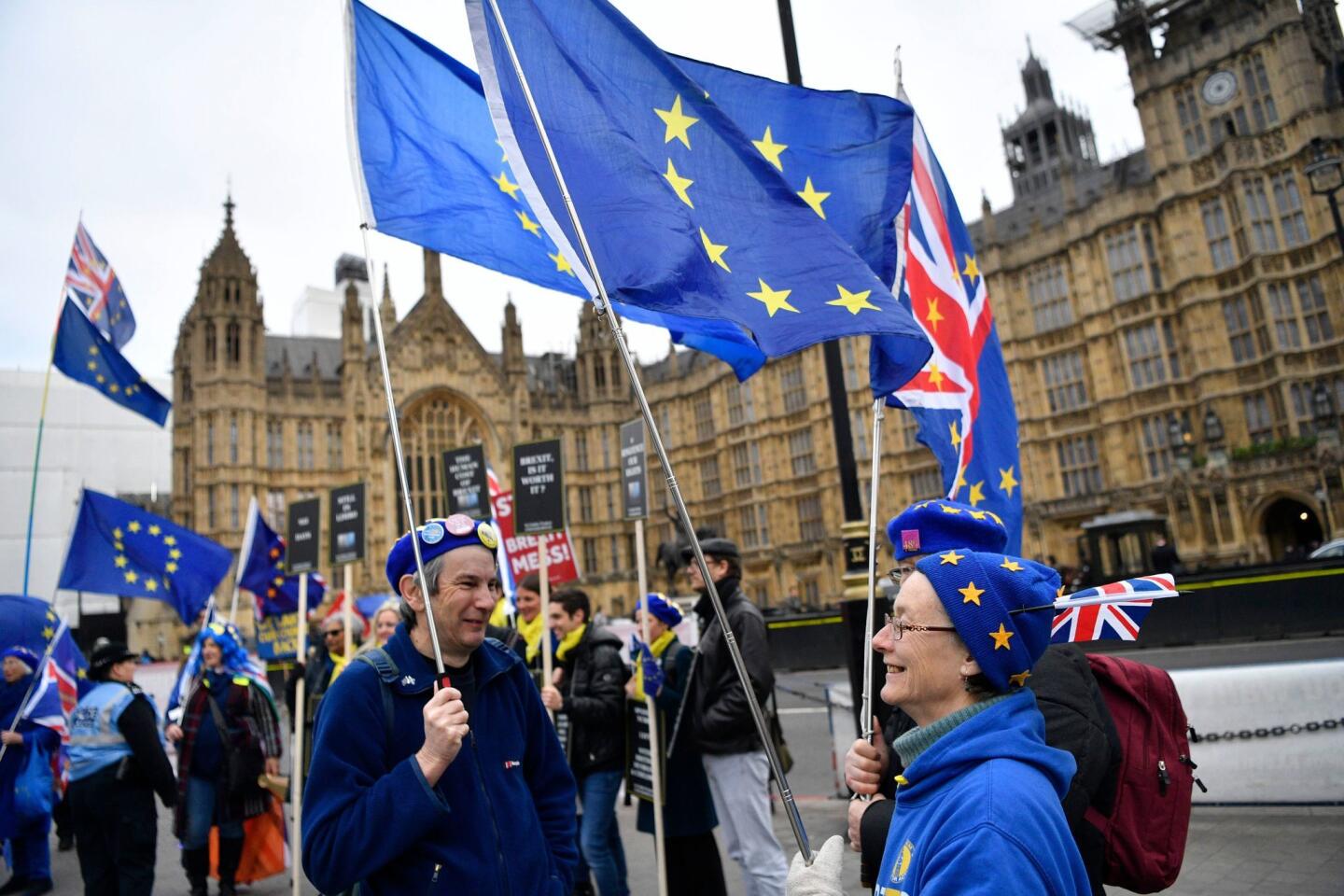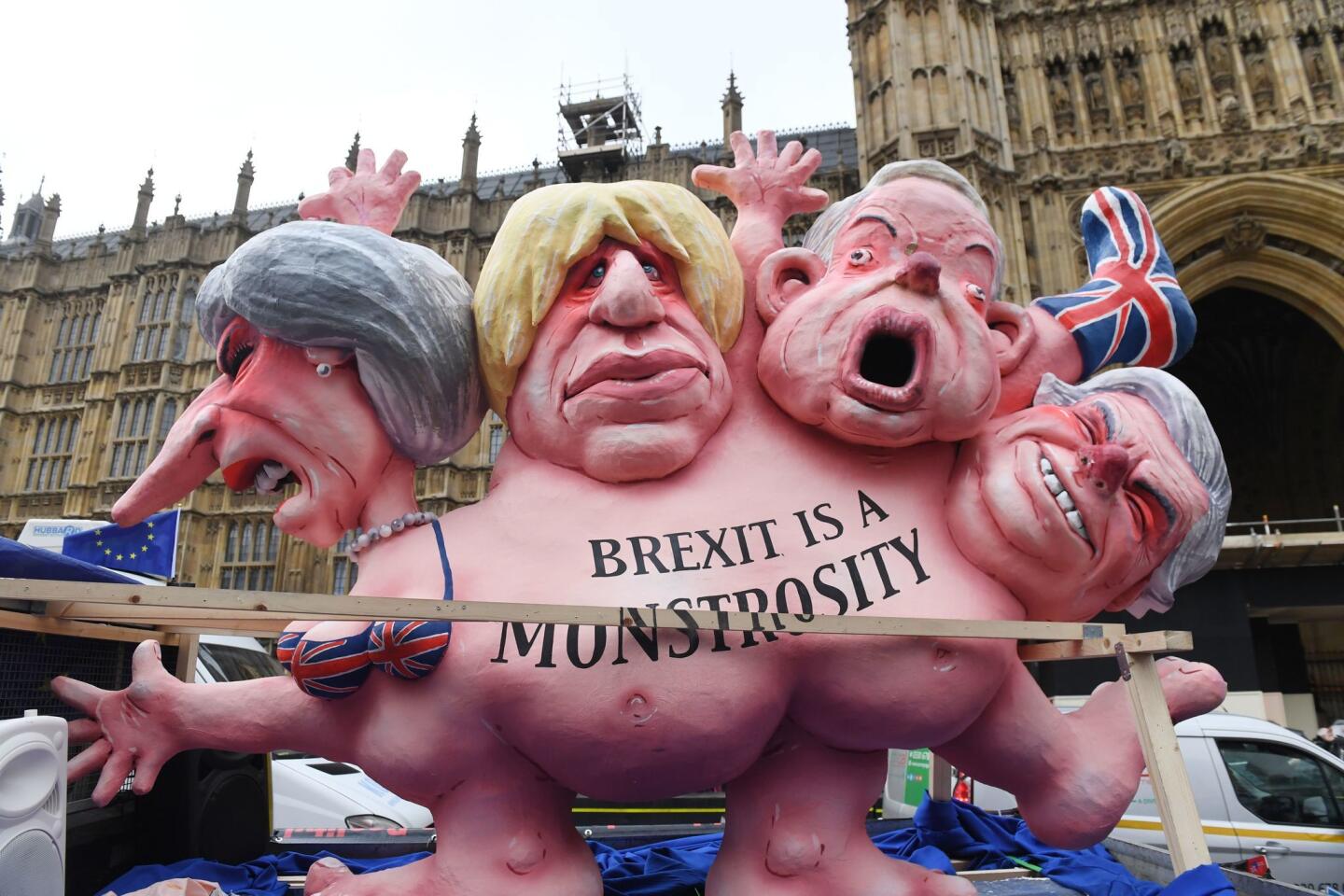Britain’s Theresa May faces no-confidence vote after crushing rejection of Brexit plan
Reporting from London — British lawmakers on Tuesday overwhelmingly rejected Prime Minister Theresa May’s blueprint for separating from the European Union, throwing the torturous Brexit process into new chaos and setting the stage for a parliamentary vote of no confidence in her government.
The lopsided scale of the defeat, with 432 votes against and 202 in favor, came as a devastating blow to May, who has staked her political career on successfully steering Britain out of its decades-old participation in the 28-member bloc.
That separation, which would have momentous economic and security consequences for Britain and its European neighbors, is supposed to occur in just 10 weeks.
Tuesday’s vote was the worst parliamentary defeat for a sitting British government in nearly a century. Her backers had hoped to limit defections within her party; instead, scores of them broke ranks, leading to the crushing 230-vote margin of loss.
By hallowed parliamentary tradition, a British prime minister who suffered such a thoroughgoing rebuke from lawmakers would step aside. But in political terms, Brexit has seemingly upended the laws of physics, and May signaled she would push ahead in her increasingly quixotic efforts to secure an accord.
European leaders expressed dismay over the outcome — and issued a sharp reminder of the timetable, which calls for Britain’s exit from the EU on March 29. European Commission President Jean-Claude Juncker voiced regret and added: “I urge the United Kingdom to clarify its intentions as soon as possible. Time is almost up.”
May and her key Cabinet colleagues had made a last-ditch bid to shore up support. But the effort was in vain.
“The government respects the will of the House,” the grim-faced prime minister said afterward. The defeat, she said, will mean “more bitterness, more rancor.”
Within moments of the vote, opposition Labor leader Jeremy Corbyn — excoriating May for “sheer incompetence” — called a vote of no confidence in her government, to be held Wednesday evening. But Northern Ireland’s Democratic Unionist Party said it would back the prime minister, so she was considered likely to survive that challenge.
While noisy protests took place outside, the scene inside was only a bit less discordant. Parliamentary proceedings were punctuated by cheers, jeers and a general ruckus. Even as the tally was being read out, Speaker John Bercow paused to bellow: “Orderrrrrr!”
With passions running high, one member of Parliament, Tulip Siddiq, delayed her caesarean section by two days to take part, casting her vote from a wheelchair against the deal.
The campaign for the 2016 Brexit referendum was a bitter one, exposing deep rifts between different segments of British society. The 52% of voters who favored leaving the EU felt Britain needed to take back control of its laws, borders and spending. Immigration also became a tinderbox.
Many who supported leaving the EU also felt that money sent by Britain to the EU each year would be better spent improving the overburdened National Health Service and dealing with other domestic needs. They also disliked the fact that Britain was not free to strike its own trade deals with other countries outside the EU.
But the 48% who voted to remain in the bloc believed, with equal passion, that Britain would be safer and more prosperous in the EU. Hundreds of thousands of people have taken to the streets of London to protest that the referendum result did not reflect true national sentiment.
May, who became prime minister after the referendum and the resignation of her predecessor David Cameron, faced the unenviable task of trying to marry those diametrically opposing views — a task she has struggled with for months.
The doomed deal’s central sticking point was over how to prevent a “hard” border from emerging between Northern Ireland — which is to leave the EU with the rest of the United Kingdom — and Ireland, an EU member. A fortified frontier, with guards and customs posts, would threaten the hard-won peace accord of 1998, which followed decades of sectarian strife.
After the June 2016 referendum, Britain triggered Article 50 of the principal EU treaty, setting the countdown clock in motion for departure. But May could ask the EU for an extension, which the bloc, seeking to avoid chaos, might well grant. At least one parliamentary faction, the Scottish National Party, has already called for a postponement.
Some questioned whether Brexit would take place at all. The idea of a second referendum — dubbed a “People’s Vote” by its backers — has considerable public support but would need the approval of a divided Parliament.
Exasperated European officials appeared to obliquely refer to the possibility of a do-over.
“If a deal is impossible, and no one wants no deal, then who will finally have the courage to say what the only positive solution is?” Donald Tusk, the president of the European Council, wrote on Twitter.
The EU has firmly ruled out any substantive changes in the negotiated accord, saying the deal that Parliament rejected was the only one on offer.
May could return to Brussels to search for some small concessions, and bring those before British lawmakers for another vote. But mere tweaks would be unlikely to change the outcome in Parliament.
In what had already been a disorderly process, Tuesday’s vote raised even more rancorous questions.
“Everyone is aware that we are entering uncharted territory,” Anand Menon, director of the think tank UK in a Changing Europe, said before the vote.
The tumult renewed the specter of leaving the EU with no accord in place, or “crashing out.” A no-deal Brexit has been described by economists as a doomsday scenario, one highly disruptive to trade and likely to set off a deep recession.
Consumers might face expense and scarcity of goods that were previously freely available, such as some medications. Most lawmakers oppose crashing out, though for different reasons. But the parliamentary mechanism for preventing it is unclear.
Some of Brexit’s most ardent proponents, though, seemed to embrace the chaos.
Boris Johnson, May’s former foreign secretary who quit over objections to the deal she presented, said the government should be “actively preparing for no deal, with ever more enthusiasm.”
Special correspondent Boyle reported from London and Times staff writer King from Washington.
More to Read
Sign up for Essential California
The most important California stories and recommendations in your inbox every morning.
You may occasionally receive promotional content from the Los Angeles Times.

